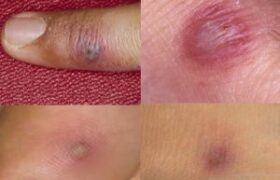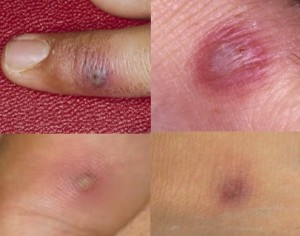Acute Febrile Illness (AFI): Causes
Acute Febrile Illness (AFI) is characterized by a sudden onset of fever and associated systemic symptoms lasting for a short duration, typically less than two weeks. It is a common presentation in clinical settings and can be caused by a wide range of infectious and non-infectious etiologies. Proper identification of the underlying cause is crucial for effective management and treatment. This article provides a comprehensive list of all possible causes of AFI, including rare causes.
Causes of Acute Febrile Illness (AFI)
Table 1: Causes of AFI (Including Rare Causes)
| Type | Cause | Examples |
|---|---|---|
| Infectious Causes | Bacterial Infections | Typhoid Fever, Pneumonia, Meningitis, UTIs, Endocarditis, Brucellosis, Tularemia, Anthrax, Q Fever, Melioidosis, Leprosy, Lyme Disease, Rickettsial infections (Rocky Mountain Spotted Fever, Scrub Typhus) |
| Viral Infections | Dengue, Influenza, COVID-19, Chikungunya, Measles, Mumps, Rabies, Hantavirus, Viral Hemorrhagic Fevers (Ebola, Marburg), West Nile Virus, Zika, Crimean-Congo Hemorrhagic Fever (CCHF), Lassa Fever, Nipah Virus | |
| Parasitic Infections | Malaria, Leptospirosis, Trypanosomiasis, Toxoplasmosis, Babesiosis, Schistosomiasis, Amoebiasis, Fascioliasis, Filariasis, Echinococcosis | |
| Fungal Infections | Candidiasis, Histoplasmosis, Coccidioidomycosis, Cryptococcosis, Blastomycosis, Paracoccidioidomycosis, Sporotrichosis, Aspergillosis | |
| Non-Infectious Causes | Autoimmune Disorders | Systemic Lupus Erythematosus (SLE), Rheumatic Fever, Still’s Disease, Sarcoidosis, Vasculitis, Adult-onset Still’s Disease (AOSD), Polyarteritis Nodosa |
| Malignancies (Neoplastic) | Lymphoma, Leukemia, Renal Cell Carcinoma, Hepatocellular Carcinoma, Multiple Myeloma, Metastatic Cancers, Paraneoplastic Syndromes | |
| Drug-Induced Fevers | Antibiotics, Anticonvulsants, Chemotherapy, NSAIDs, Antiarrhythmics, Vaccines, Biologics, Illicit Drug Reactions | |
| Environmental Causes | Heat Stroke | Heat Stroke, Hyperthermia due to extreme environments, Neuroleptic Malignant Syndrome (NMS) |
| Hyperthermia from Toxins | Cocaine, Amphetamines, Anticholinergics, Salicylate Toxicity, Serotonin Syndrome | |
| Unknown Causes | Fever of Unknown Origin (FUO) | Idiopathic Fevers, Familial Mediterranean Fever (FMF), Adult-onset Immunodeficiency Syndrome (AOIS), Periodic Fever Syndromes |
Pathophysiology
1. Infectious Causes (Most Common)
- Bacterial Infections:
- Pathophysiology: Activation of immune response via endotoxins or exotoxins leading to cytokine release (IL-1, TNF-α).
- Examples:
- Typhoid Fever (Salmonella typhi)
- Pneumonia (Streptococcus pneumoniae, Haemophilus influenzae)
- Meningitis (Neisseria meningitidis, Streptococcus pneumoniae)
- Urinary Tract Infections (E. coli)
- Viral Infections:
- Pathophysiology: Viral replication causing cell lysis, immune activation, and cytokine storm.
- Examples:
- Dengue Fever
- Influenza
- COVID-19 (SARS-CoV-2)
- Chikungunya
- Measles, Mumps
- Parasitic Infections:
- Pathophysiology: Immune response to parasitic antigens; inflammation and tissue damage.
- Examples:
- Malaria (Plasmodium spp.)
- Leptospirosis (Leptospira spp.)
- Trypanosomiasis (African Sleeping Sickness)
- Fungal Infections:
- Pathophysiology: Invasive fungal infections trigger inflammatory responses, especially in immunocompromised individuals.
- Examples:
- Candidiasis
- Histoplasmosis
2. Non-Infectious Causes
- Autoimmune Disorders:
- Pathophysiology: Autoimmune activation causing systemic inflammation and fever.
- Examples:
- Systemic Lupus Erythematosus (SLE)
- Rheumatic Fever
- Still’s Disease
- Malignancies (Neoplastic):
- Pathophysiology: Release of pyrogens from cancer cells or tumor necrosis.
- Examples:
- Lymphoma
- Leukemia
- Renal Cell Carcinoma (Paraneoplastic syndromes)
- Drug-Induced Fevers:
- Pathophysiology: Hypersensitivity reactions or alteration in thermoregulation.
- Examples:
- Antibiotics (e.g., Beta-lactams)
- Anticonvulsants (e.g., Phenytoin)
- Chemotherapy agents
3. Environmental Causes
- Heat Stroke:
- Pathophysiology: Failure of thermoregulation leading to hyperthermia and systemic inflammatory response.
- Hyperthermia from Toxins:
- Pathophysiology: Direct effect on hypothalamic regulation or increased metabolic rate.
- Examples:
- Cocaine, Amphetamines
- Anticholinergic overdose
4. Unknown/Idiopathic Causes
- Fever of Unknown Origin (FUO):
- Pathophysiology: Persistent fever (>3 weeks) without clear etiology despite thorough investigation.
References
- Mandell, Douglas, and Bennett’s Principles and Practice of Infectious Diseases, 9th Edition.
- Harrison’s Principles of Internal Medicine, 21st Edition.
- Kumar & Clark’s Clinical Medicine, 10th Edition.
- Fauci AS, et al. (2020). Harrison’s Principles of Internal Medicine. McGraw-Hill.
- Shapiro DS, et al. (2019). Infectious Disease: A Clinical Short Course. McGraw-Hill.
- Longo DL, et al. (2019). Fever of Unknown Origin. New England Journal of Medicine.

